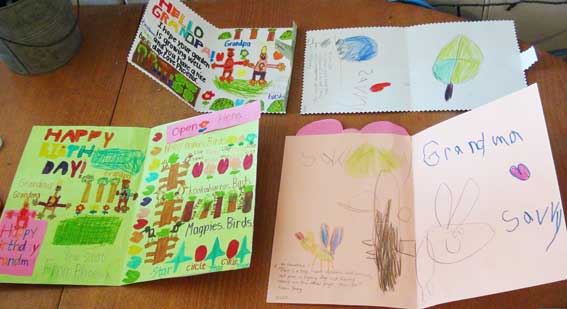Perspective of a home-schooling Mum
Home-schooling or conventional schooling, which one? It’s one of those big decisions every parent must make at some point. For most people, taking their kids to public school is the conventional thing to do these days. But is it the highest road one can take as a loving parent to educate their children?
I/we (as a team) always question what’s conventional, especially when it involves the wellbeing of the family, and especially when it relates to their mental and physical health, which is top priority.
Some of the questions I often ask pertaining to home-schooling (and many other fields):
‘Do they have my/my families interests in mind?’
‘Are they driven by profit or other reasons/agendas?’
and ‘Can I really trust them with my kids’
Many of these questions failed to give a positive answer, so it’s easy to see why it was an easy decision for us to make.
Here are some of the main reasons for home-schooling.
1. I don’t trust the school environment
I don’t know what environment my kids are in everyday, what the teachers are like, if there are bullies. Being bullied is a very serious and increasingly common issue, it can really harm a child’s emotional wellbeing. You’re not there to monitor anything so it’s a possible risk to your child’s mental and physical health.
I thought I’d also mention Wi-Fi as posing a health risk in schools, for those of you who haven’t heard about the risks associated with electromagnetic frequencies I encourage you to do some research. There are many scientists and doctors who talk about Wi-Fi as a potential health risk to human biology. What possible harm could this be doing to a young child?
Their formative years are so important that as a parent you must protect them from possible threats. Leading scientist Bruce H. Lipton, PhD, teaches of the impact of the environment on a young child’s mind, especially between the ages of 0-7 where they are most susceptible. It’s the foundational stage where everything they have learned, all their beliefs and experiences from their environment begin to lock in, whether detrimental or not. From 0-7 and upward into their teen years, it’s an important time to get right. If I could trust the school environment fully then there would be no problem.
I try to keep my kids away from other influences such as processed foods and sugar, vaccines and destructive behaviour demonstrated by other children. When you aren’t there to monitor what’s going on then there is a problem.
2. My experience wasn’t a good one
When I was in school, I went through a tough time because I was a scared kid, there were bullies, trying to fit in, competition and a strong lack of nurturing from teachers that felt scary and/or authoritarian. And this was not just my experience. Siblings and other kids I went to school with felt a similar way. They couldn’t wait to leave school.
Then there was the pressure of getting good grades and pleasing the teacher so that your parents would be proud of you. Or just pleasing the teacher to get approval and hope to stand out as the good student to feel good about yourself. If you get good grades and work hard enough in high school, then hopefully you could get into university. From there a good paying day job…
But where was my true essence in all of this? Was I trying to be the best follower, trying to fit into their mould? Shouldn’t life be about fun, including the learning process? Without the pressures – impressing others and trying to fit in?
All in all, it wasn’t a fun experience for me, and I wanted my children to be kept away from of all that.
3. Competition
Competition can be fun sometimes, especially when everyone involved is having fun. Playing games in a spirit of fun is cool, when no one really cares who wins or loses.
There’s another side of competition that’s not so light-hearted. I think that entering kids in competitions in school or trying to win high grades can be stressful and detrimental, especially when a child doesn’t think highly of themselves.
I can’t remember the countless times I felt ‘inferior’ as a child because I could never win that award. Especially with sports and sport related activities. What is wrong with me? Why am I not good enough? Sound familiar? I am certain many kids would feel this way when they don’t get good enough grades or win an award.
On the flipside, it may feel good for a child to win an award temporarily, but what if they lose the next time? Would the child who won an award feel pressured to keep winning for approval? And the children that didn’t get to win? How would they be feeling?
Bullying and peer pressure
Bullying is one of those serious issues, it can really scar a kid’s psychology for life. It’s generally the lucky few that get away unscathed from this one. I include fighting and bickering amongst pupils as part of bullying.
How many times did I witness: teaming up against another student, name calling, physical fighting, ridiculing, embarrassing another student amongst others – even when a student keeps to themselves and doesn’t instigate anything…the list goes on.
Peer pressure can lead to bullying and can change a child’s demeanour completely. Their personality and behaviour can completely alter and can in turn cause problems and conflicts at home.
Would I really want to subject my child to this?
Challenges and triumphs of my home-schooling experience
What about their social life?
This is the most common question that is asked by others when it comes to home schoolers.
Putting your child into a classroom of kids their age doesn’t automatically mean they will have a successful social life. It’s true we make friends at school but in my experience, many of them weren’t friendships that stood the test of time. I felt pressured to make friends at school for convenience – to fit in, but they weren’t true and long lasting.
Yes, kids need a social life, this is true. But I strongly believe that a successful social life stems from how a child feels about themselves first. Then it’s up to us as home-schooling parents to find them like minded kids that they can trust and connect with. Whether it be kids their exact age range or not, what’s most important is that they grow up in a loving and nurturing environment with strong friendships. Big families come in handy here.
The school system doesn’t emphasise the importance of self-confidence, leadership and self-esteem for the individual. This is the vital component that many people miss or ignore. When kids feel like they are important and worthy on the inside, socialising is automatic, they are happy, they have nothing to prove to anyone else. And they don’t necessarily need a room full of kids the same age to help them achieve it. In society and family structures, it is normal to socialise with other people of any age range. In this way, I don’t think the school system represents the social structures of the real world.
Home-schooling is beneficial for us because we can encourage all things relating to self-empowerment: self-love and self-esteem, leadership skills, fun for learning etc.
You have full control of the curriculum
I think that it’s great to take full control of what your kids will be learning. I hone in on what I think is most relevant and important and don’t follow strict guidelines. It becomes a more tailored learning experience – after all who can know what your child needs better than you do? You intuitively go at their learning pace.
There are many free online resources you could follow; I combine free online resources with worksheets photocopied from activity books I had purchased from the store (the ones that give you age guides on main subjects). I use free apps from the Play store for my youngest for reading practice.
I am still learning and growing from home-schooling. There are still ongoing challenges, but I always strive to improve myself, my skills and for those of my kids to be the best home-schooling mum for myself and my gorgeous kids.
Starting from square one
When I first started out, I felt a little overwhelmed. I didn’t know whether I was doing things right, didn’t know what curriculum or workbooks to buy. I felt like I didn’t quite know what I was doing. But even though I did feel this way at first and had a few stumbles along the way I began to find my way. I’m glad that I persevered and trusted myself because I have grown so much as a person. It encouraged me to find strength within myself.
The main thing I had learned was not to try too hard and to keep things flexible and most of all enjoyable. I found that mixing things up is important to stop subjects becoming a drag. Some days I don’t follow the curriculum but teach other fun things like cooking, sewing, learning an instrument, singing etc. But all these activities are generally done outside of the curriculum anyway.
The main thing is to keep learning fun, because if you are having fun as a teacher, this will automatically pass onto the student and they’ll learn quicker.
Another great thing about home-schooling is that you refresh and relearn the things you learned in school. As you teach your kids, you teach yourself at the same time.
No pressure
So, a great aspect of home-schooling is that there is no pressure of grading like there can be in school. It’s all in all a more relaxed learning environment.
I wanted to provide a learning environment where they felt free to learn and have fun, without burdens and pressures of conventional schools.
The importance of discipline
Discipline is an important skill to develop, and one of the key ingredients for leadership and success.
Where does discipline start? Always in the mental realm. I define discipline as our thought processors, our ability to stay focused, to stick to routine and repetition, our ability to finish and complete projects and our ability to keep the mind directed on a certain goal without deviation.
It’s also our ability to not allow emotions to rule over us, to stay in control. It’s the ability to not allow negative influences penetrate our thought processors. This can happen with and idle, indecisive or uncertain mind.
The schooling system does have structure and routine, but not necessarily for the benefit of the child. The home schooler can still be taught with discipline as a key skill but modified to benefit the child for personal leadership.
I don’t believe that home-schooled kids should have ‘free play’ and mostly left alone to learn without strong guidance. Free play has it’s time and place, but kids can’t naturally focus too well. They need some form of structure to provide the foundations for building their inner leadership.
Judgement from others
One of the challenges I’ve faced when it comes to home-schooling was the judgement of others. Unspoken or otherwise, the feeling is there even from family members who don’t get where you are coming from. Questions such as ‘what about their social life’ or ‘doesn’t taking them to school build their character’ or ‘aren’t they missing out on opportunities’ frequently come to the forefront.
The best way I have learned to handle this negativity is to be certain of yourself. Expect that you may be asked these questions and answer them with conviction and certainty, in a matter of fact way without the inclusion of negative energy. You know you are right and that is all that matters. Whether others support you or not is their decision to make. Your decision is to team up with the people that do support you.
Get support
One of the most important things to have is support from people that agree with you. Also, if you can share or delegate subjects or activities to someone you can trust all the better. We can’t be good at everything, and within a team each member has their strong points and weak points. We can get help to overcome our weaknesses and develop more strength and leadership within ourselves and for our kids. If we are stronger, our kids will be stronger. After all we are their role-models. This is where working as part of a team helps. In fact, you can’t really do it without support, we all need it. If you have family that does support you, fantastic!
For those of you who are starting out or thinking about home-schooling, I can honestly say it has (and still is) a rewarding experience that also has its challenges. But then again, going against anything conventional means you will undoubtedly face some challenge along the way. Take it in your stride and stay strong and determined because only you know what is best for your child.
Good luck on your home-schooling journey.
Helen




